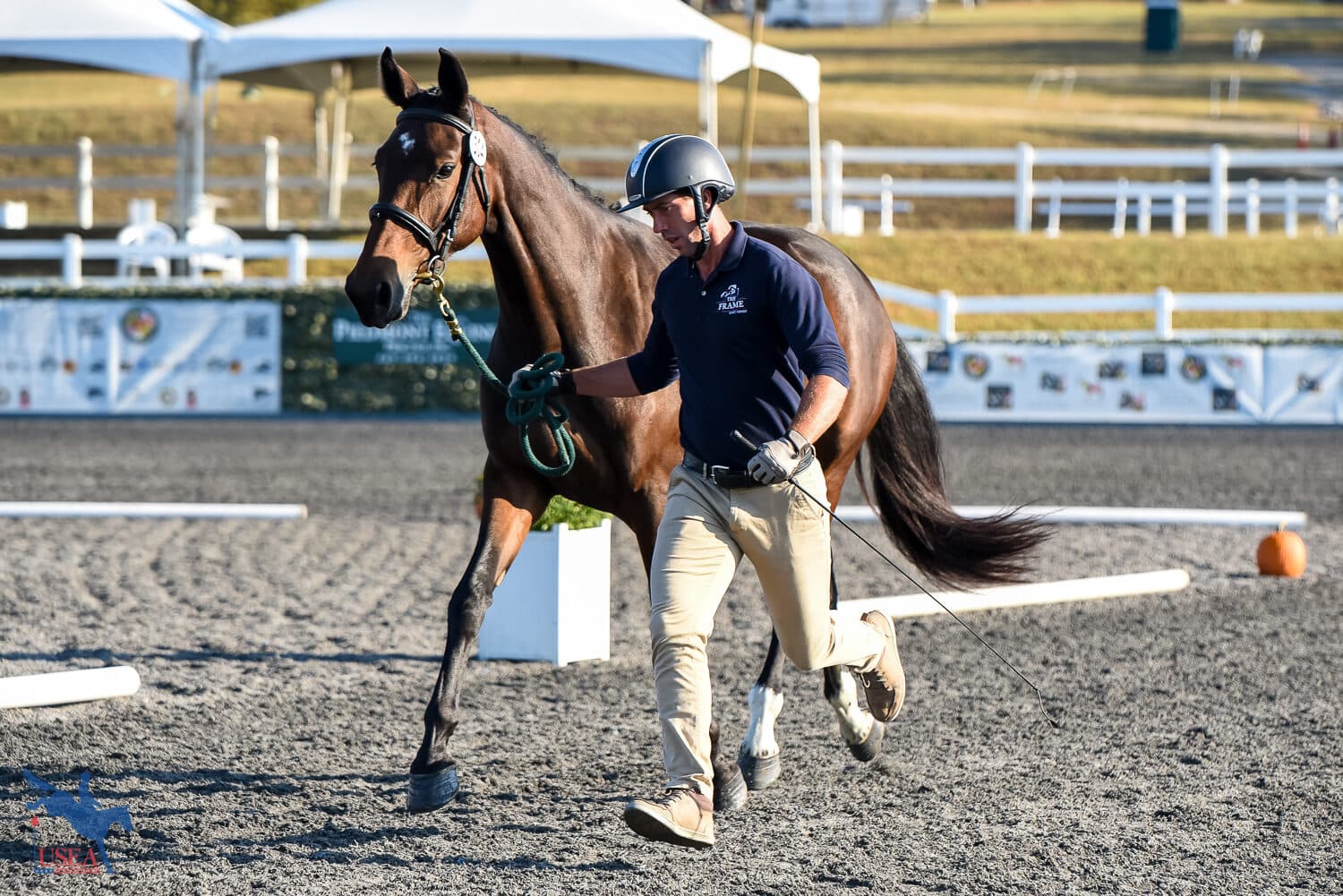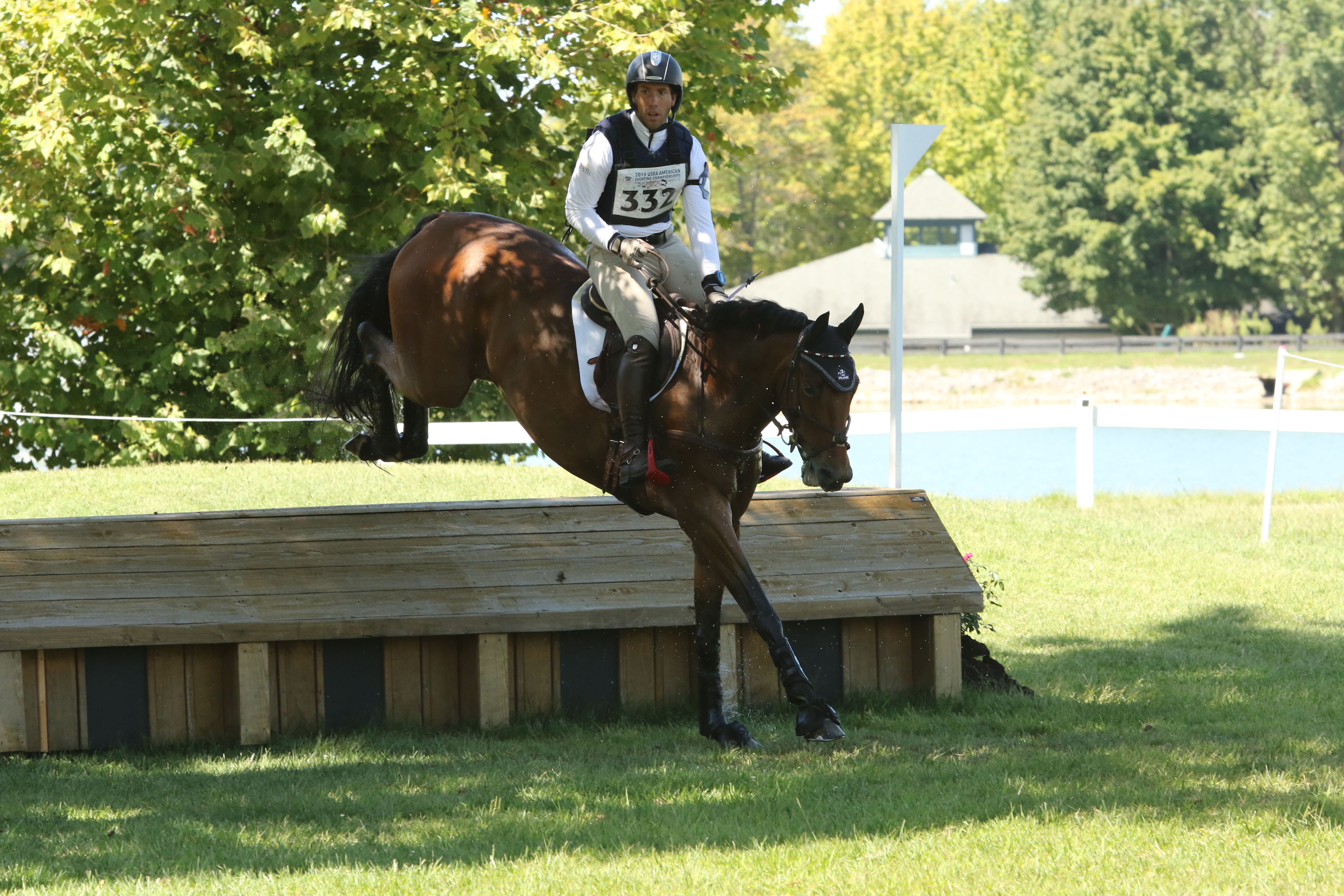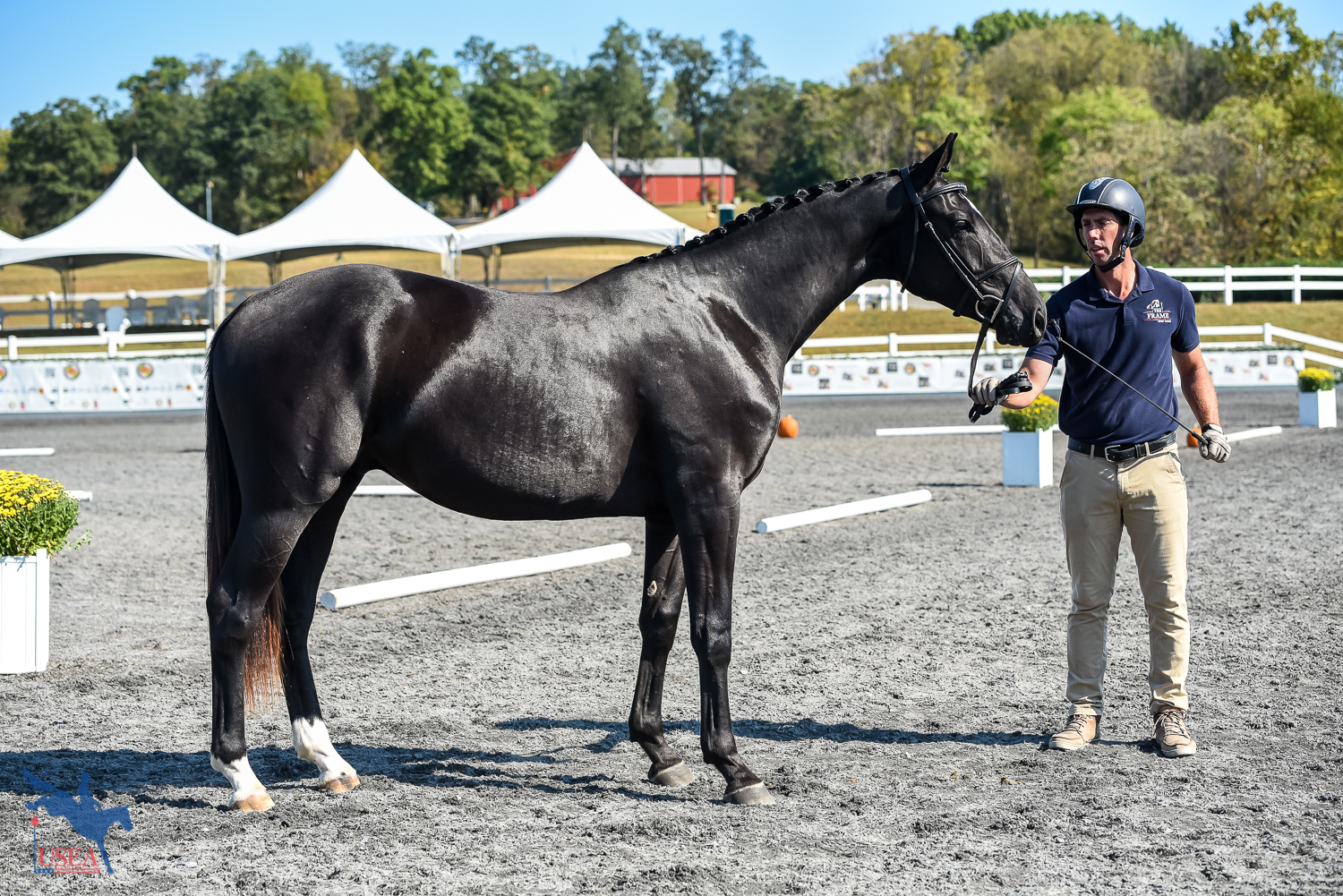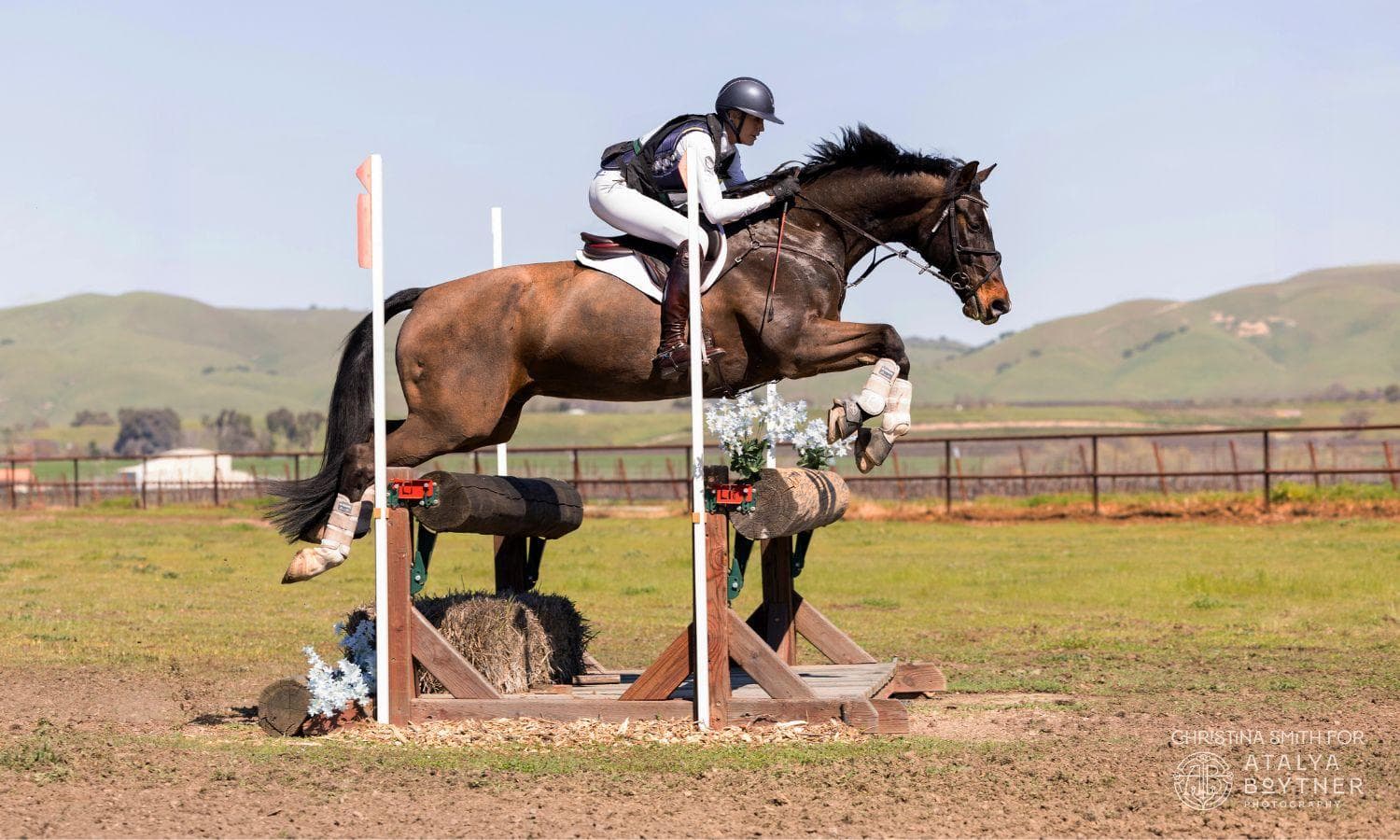Featured Clinician: Martin Douzant

The Featured Clinician article series is provided through a partnership between Event Clinics and the USEA.
For Martin Douzant, experience is everything. As the owner and operator of The Frame Sport Horses based in The Plains, Virginia, Douzant has been able to build a successful training business on a foundation of great education, involvement across equestrian disciplines, and a distinct reverence for the horse.
This international eventer’s boutique training business fosters positive experiences for young horse and builds a strong foundation for success through the levels. A popular clinician, Douzant’s teaching enables horses and riders of all ages and experience levels to gain confidence through thoughtfully structured exercises.
Douzant set aside some time this winter to chat with Event Clinics about the far reaches and nuances of the equestrian industry; from young horses to teaching, and more.
From an early age, Douzant was immersed in the horse world. “It’s a culture in France,“ he says. “There is a riding school in every village. I grew up playing horse ball and pony games.”

Douzant discovered his passion for young horses when he helped out at nearby breeding operations and was involved with the local show jumping scene while he attended an equestrian-centric high school. Expanding his education further, Douzant went on to study sports management and business in college and also completed the two-year BEES First Degree Instructor Certification.
“We learned how to teach riders of all ages in all disciplines, little kids on ponies all the way to advanced adult riders. Here in America I find many of the programs are too discipline-specific whereas in France and in Europe in general there are certifications for teaching general riding. I think that’s important- it’s helpful to learn about the psychology of people. You can’t teach kids the same way you teach adults; it takes time to learn different techniques for getting the same message across.”
“I started teaching clinics because I wanted to share more of my experience. In a clinic setting I can impact a bigger group at a time, I want to help as much as I can.”
One way that Douzant finds he can deliver some of his teaching methodology differently is through free jumping clinics. These have gained popularity in recent years as the USEA has introduced the Future Event Horse Program and there has been a push to incentivize American sport horse breeding programs.
“I want to be part of the young horse industry as it grows in this country. I want to help people learn to do more young horse backing and training, et cetera. I can only do 10 horses at a time myself, we need more people who have these skills.”

“Today, the FEH program asks horses to free jump as a part of judging. It’s the best way to assess the potential of horse; I think we will see this more and more as all of the breeding programs will ask horses to free jump. We need to begin to train and prepare our young horses for these assessments.”
“In the clinics we have a lot of young horses but also older horses. Owners want to have a little fun, and in free jumping sometimes we can ask the horses to jump a little higher if they are comfortable. Free jumping helps a lot of professional riders work through problems with their horses maybe spooking at a liverpool or something, but you can help all sorts of technique problems with the jump chute, too.”
“When you watch horses free jump and do gymnastics you see that each has their own style… they prepare their balance in their own way. The job of rider is to do his set the horse up on the flat before and after jump. One stride before and one stride after the jump, the rider needs to get out of the way.”
“A common mistake is that I see horses too round in the neck coming to the jump. Horses need to look up to the jump and be a little open in the frame when they come to the jump. I encourage riders to use the flatwork but then ride differently, a little more in the natural way.”
“The rider is there to facilitate the horse doing his job. The American show jumpers are really good at that – they get out of the way. Those riders who come up from the hunters especially have a nice balance and allow the horse his natural ability. The discipline asks for a more open frame, and a little longer rein so the riders tend to be more neutral and not interfere with takeoff, landing, or airtime.”

While Douzant has managed to find his niche with young horses, he admits he wasn’t always certain how to make his way in this industry. Douzant credits his time working for Olympic medalist Ian Stark as helping him to identify how he would channel his passion for young horses.
“Ian is a very successful rider, obviously! I learned so much about all of the disciplines and got to compete at a high level while I worked for him, but Ian had a great business model. He taught me how to have my passion be an actual way to make a living. Before that I wanted to do the competition and the sport, but didn’t know how to earn a living with it.”
“I have learned that you have to be able to be versatile but figure out what to focus your business on, and keep learning all of the aspects of the industry. Try to know how to do everything, but then realize what your expertise is and focus there.”
In the coming year, Douzant hopes to help more riders by adding to his teaching schedule as he balances the show jumping and eventing competition calendars for a number of the horses in his string. With sights set on expanding young horse programming in the United States, Douzant’s clinics will continue to provide owners and riders with tools and skills they need to meet their goals.
To meet those goals, Douzant says: “Work really, really hard at what you are doing today. Look forward to the next step and put yourself three hundred percent into it.”
To find and register for upcoming opportunities for a riding or free jumping clinic with Martin Douzant through Event Clinics, click here. You can find more details about his training program The Frame Sport Horses here.















